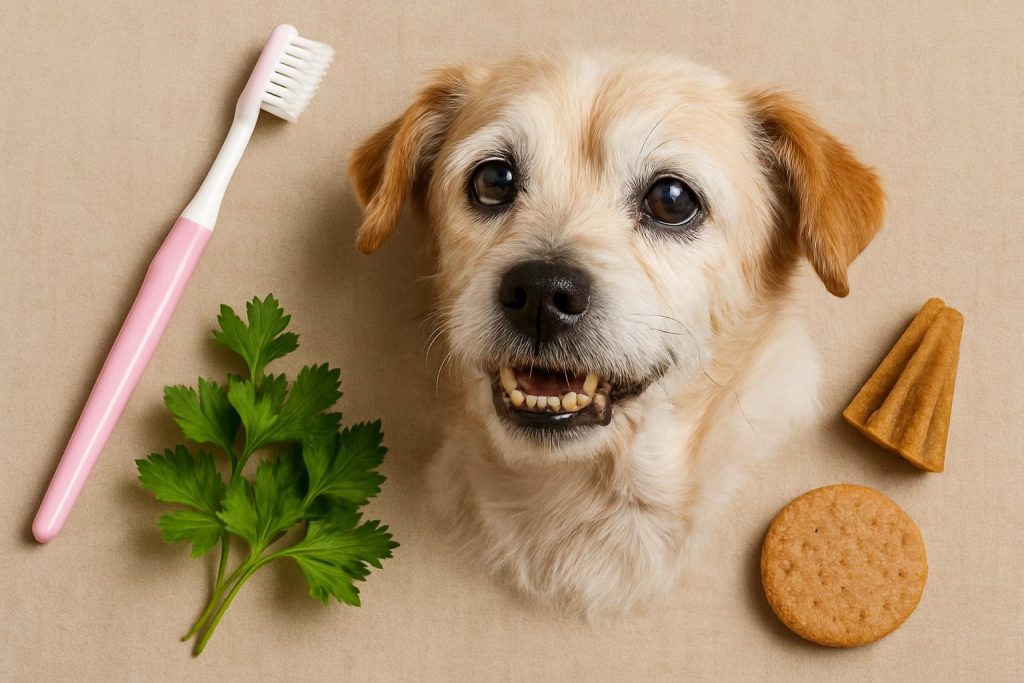Physical Address
304 North Cardinal St.
Dorchester Center, MA 02124
Physical Address
304 North Cardinal St.
Dorchester Center, MA 02124

Good dental condition is more crucial than ever as pets grow old. Older dogs and cats are more prone to tartar buildup, gum disease, and tooth decay, which might cause pain, infections, even organ damage. Thanksfully, if you know the right at-home tricks for elderly pet dental care, you can help maintain your furry friend’s mouth clean, fresh, and pain-free between vet appointments.
Poor dental hygiene isn’t just about bad breath it can contribute to heart, liver, and kidney disease. Bacteria from the mouth can travel through the bloodstream, affecting critical organs.
Watch for these red flags:
If your pet has severe tartar, loose teeth, or gum infections, only a veterinary dental cleaning under anesthesia will help.
At-home hacks slow tartar buildup, reduce bacteria, and make professional cleanings less frequent and less invasive.
Use a soft-bristled toothbrush or finger brush with enzymatic pet toothpaste (never human toothpaste).
For pets that won’t tolerate brushing, wipes can help remove plaque from tooth surfaces.
Opt for senior-friendly chews soft enough not to damage older teeth but effective in scraping plaque.
Flavorless dental additives can reduce bacteria and freshen breath.
Some vets recommend mild saline rinses, but always confirm safety before trying DIY solutions.
Some veterinary diets are specifically designed to scrape teeth while chewing.
Crunchy kibble can help reduce tartar, but many seniors need softened food for dental comfort. A mix may work best.
Coenzyme Q10, omega-3 fatty acids, and probiotics can support gum health and immunity.
1. How often should I brush my senior pet’s teeth?
Ideally daily, but even 2–3 times a week can make a big difference.
2. Can senior pets still have dental cleanings under anesthesia?
Yes, but vets will evaluate risks based on overall health. Pre-anesthetic testing is essential.
3. Are dental chews safe for pets with missing teeth?
Yes, as long as they’re soft and specifically designed for seniors.
4. What’s the best option if my pet refuses brushing?
Dental wipes, water additives, and soft chews can help as alternatives.
5. Do cats need the same dental care as dogs?
Absolutely cats are prone to painful resorptive lesions that require veterinary attention.
6. Can diet alone prevent dental disease?
No. Diet helps but must be combined with brushing, chews, and regular vet checks.
One of the most ignored components of senior pet health, dental care is absolutely necessary for comfort and longevity. These senior pet dental health at-home tips help avoid suffering, refresh breath, and safeguard your friend’s general well-being. Regular examinations, smart nutrition, mild chewable toys, and thorough brushing guarantee your pet continues smiling well into their golden years.
🔗 Learn more about pet oral health from the American Veterinary Dental College.